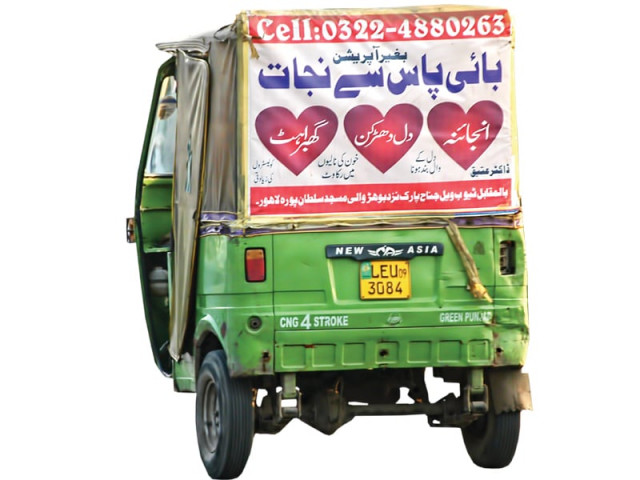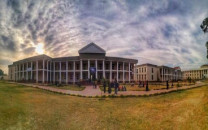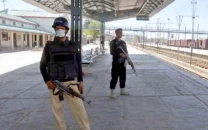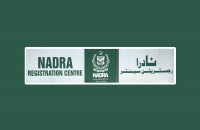JuD fans anti-India sentiment by rickshaw
Regulation of advertisements on rickshaws urged.

JuD fans anti-India sentiment by rickshaw
Rickshaw drivers charge about Rs50-Rs100 a month to place an advertising ‘flex’ – a flexible plastic sheet – on the back of their rickshaws.
The Jamaatud Dawa, the outlawed group said to be behind the November 2008 terrorist attacks in Mumbai, is currently running an advertising campaign on such rickshaws against closer ties with India.
‘Bharat say rishta kya, Nafrat ka goli ka’ (What is our relationship with India? Of hate, of bullets) reads the JuD’s advert. Another variation reads ‘Bharat say rishta kya, Nafrat ka intikam ka’, under a picture of charred corpses from the burning of the Samjhota Express train in India in which 64 people were killed, mostly Pakistanis.
“It is a horrible image,” said Shaista Kanwal, who works at a private office near Kalma Chowk and regularly travels on rickshaws. “Such images are banned on television so why are they allowed on the back of rickshaws in public places? It must have a horrible effect on children.”
The products and services advertised on the back of rickshaws range from a herbal concoction offering a cure for impotence, to whitening creams, rehabilitation centres and fortune tellers.
Shahzad Ahmad advertises his electronics shop in Abid Market on several rickshaws, paying each Rs100 a month. “We do checks to make sure they are carrying the advertisements,” he said. “We have got a good response from customers. Rickshaws are far less expensive and more effective than banners and wall chalking.”
Mushtaq said he advertised a mehfil-i-naat and his rickshaw mechanic on the back of his vehicle for free for several years, but now he was getting Rs50 a month advertising a fish restaurant. “It’s not just the money,” he said. “The back of my rickshaw was torn and customers used to complain about the draught. Now they are protected by the advertising flex.”
Dr Mugheesuddin Sheikh, dean of the Department of Mass Communication and Management Studies at Superior University, said that the back of rickshaws were a kind of “indigenous media” that served a market.
“When there is a need for something, people find ways to fulfil this need. This is an era of fast track communication and rickshaws, through their mobility, communicate commercial or non-commercial messages to a group of people effectively,” he said.
Dr Sheikh said that it was important to regulate this medium to erase hate messages and inappropriate images.
Published in The Express Tribune, December 5th, 2011.



















COMMENTS
Comments are moderated and generally will be posted if they are on-topic and not abusive.
For more information, please see our Comments FAQ